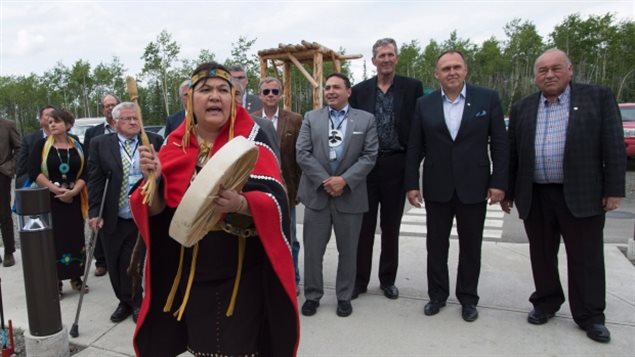The Council of the Federation is the official title of the congress that brings together the 10 premiers and 3 leaders of the territories in Canada’s north. It is a semi-annual opportunity to discuss the big issues they often differ on, and when possible, come to a united front when dealing with Canada’s federal government.
Professor Nelson Wiseman, of the University of Toronto’s political science department, says the location, in Whitehorse, Yukon, is interesting. While U of T has twice as many students as the population of the northern city, the focus on the north demonstrates the evolution of the territories. He says their status has increased over time.
Listen“It wasn’t that long ago, 40 years ago, that a commissioner appointed by Ottawa directly ran those territorial governments. Then we had what were called government leaders, and now they’re being called prime ministers.” Wiseman says it’s only in the last decade that they’ve been included in these meetings.
Wiseman explains that constitutionally the terrritories don’t have the same power the provinces do, in running their affairs. Where the federal government cannot interfere with how the provinces handle their natural resources for example, in the territories, Ottawa has the final say.
It’s easier to buy foreign products than it is Canadian products that come from another province
One of the ongoing issues at these meetings is inter-provincial trade. Despite a much-heralded agreement in 1994, not much has changed. Wiseman says, as many Canadians know, “it’s easier to buy foreign products than it is Canadian products that come from another province.”
This is particularly evident when it comes to beer and alcohol sales. Wiseman says it’s baffling as it was not part of the founding vision of the country. “The 1867 constitution… makes it very clear that there shall be no impediment to goods being transported and sold across provincial boundaries.”
But over the years, the courts strengthened provincial governments giving them greater control over industries, which are regulated provincially, and protectionist practices became established. The movement of labour is another issue bound provincially and in these tough economic times, particularly with the oil bust affecting people in Alberta and Newfoundland and Labrador so deeply, progress in this realm could have far-reaching benefits.
Premier Kathleen Wynne of Ontario sounded optimistic in an interview today saying their could be an announcement by Friday afternoon when the meeting ends, but Premier Christy Clarke of British Columbia said it was all about compromise, and she didn’t necessarily see that developing as the meetings continued.
13 different healthcare systems in the country
One of the other major issues the provinces may want to come to agreement on, is healthcare. The programs are administered provincially, with significant funding from the federal government. The current formula for that contribution is set to expire in the spring of 2017, so a unified front would be an asset in ngotiating.
“We actually have 13 different healthcare systems in the country.” Wiseman says. Medicare was launched as a federal program with the government paying 50 per cent of the costs as an incentive for the provinces to join in the 1950’s, he explains. Now the federal contribultion is only 20 per cent leaving the provinces spending almost half their budgest on healthcare. The hope is the federal government will increase its contribution to 25 per cent.
Climate change issues, from carbon pricing to the constuction of pipelines are some of the other national issues facing Canadian leaders. And the renewal of relationships with our First Nations is increasingly a high profile endeavour in Canada. The upcoming inquiry into the Missing and Murdered Indigenous women and girls is going to expose a lot of structural racism, and the negotiations over pipelines now must include the aboriginal communities that are directly afftected.







For reasons beyond our control, and for an undetermined period of time, our comment section is now closed. However, our social networks remain open to your contributions.